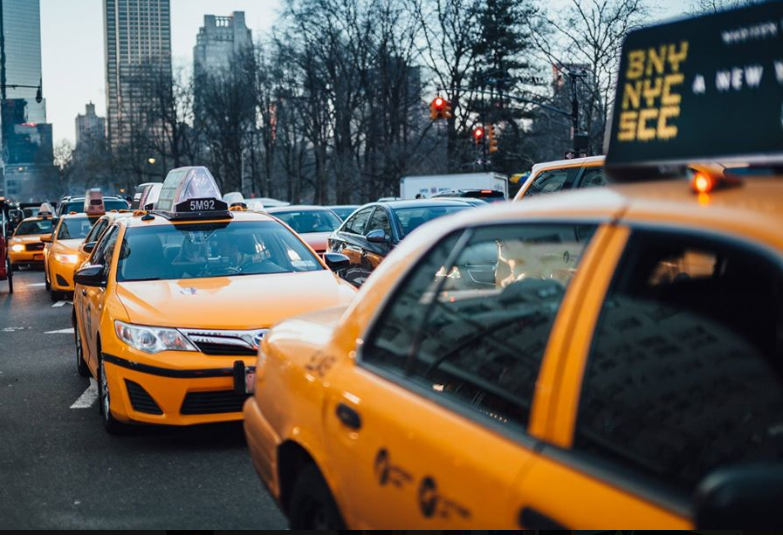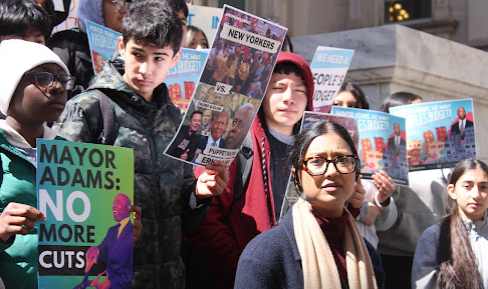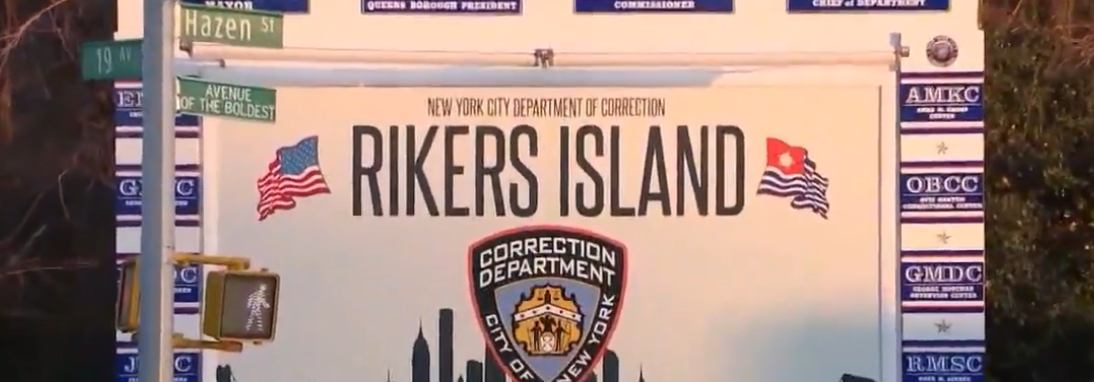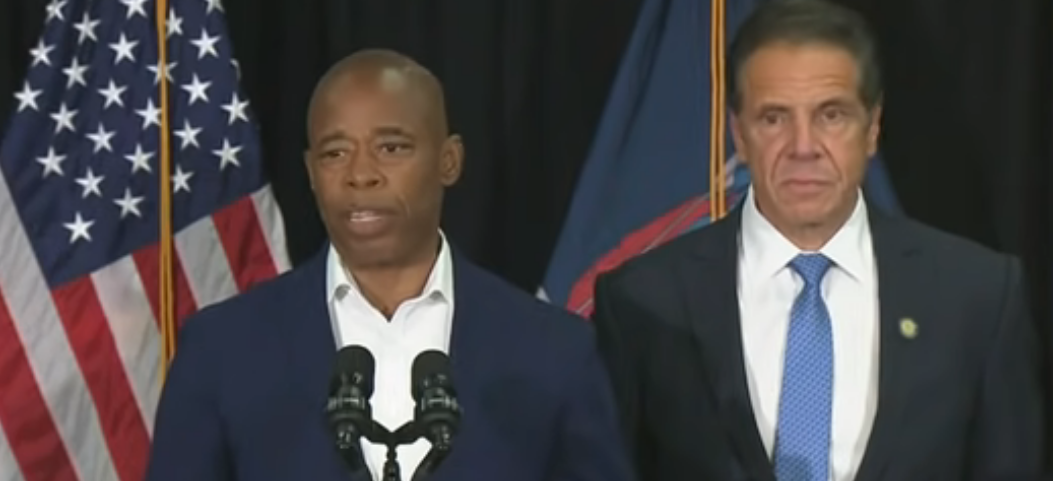[Taxi & Limousine Commission\Fraud]
Attorney General James: “Government should be a source of justice, not a vehicle for fraudulent practices.”
Photo: Facebook
New York Attorney General Letitia James today sent a notice of claim for $810 million to the City of New York.
The notice alleges that it fraudulently inflated the price of thousands of yellow taxicab medallions and profited from it over a 14-year period.
An investigation by the Office of the Attorney General revealed that, between 2004 and 2017, the New York City Taxi and Limousine Commission (TLC) marketed the licenses for thousands of taxi medallions to purchasers as investments and conducted auctions of these medallions in a manner which artificially inflated prices by hundreds of millions of dollars. The city not only engaged in a scheme that defrauded medallion owners, but continued to further market these medallions at overvalued rates even after internal reports raised warnings about the inflated values.
“Government should be a source of justice, not a vehicle for fraudulent practices,” said Attorney General James. “These taxi medallions were marketed as a pathway to the American Dream, but instead became a trapdoor of despair for medallion owners harmed by the TLCs unlawful practices. The very government that was supposed to ensure fair practices in the marketplace engaged in a scheme that defrauded hundreds of medallion owners, leaving many with no choice but to work day and night to pay off their overpriced medallions. What’s worse is that the TLC knew their actions were affecting some of the city’s most financially exposed immigrant families. We are taking action to ensure New York’s hard-working taxi drivers can be made whole again and are repaid the hundreds of millions the city unlawfully pocketed.”
A taxicab medallion is a numbered metal plate that is affixed to the body of a New York yellow taxicab. A medallion licenses a driver to accept “street hails” and to charge a fare that is regulated and set by the TLC. Since 1937, the TLC has controlled all sales of new medallions through auctions and has overseen all transfers of medallions between third parties. There are currently more than13,600 taxi medallions in New York City.
In the past, the City of New York and the TLC have promoted ownership of taxi medallions as “a solid investment with steady growth,” claiming that its “return” was “better than the stock market.” A former TLC Commissioner even once noted that medallions have “outperformed practically every other type of investment that exists.” The TLC has also previously lured purchasers by claiming the high value of taxi medallions could be used as collateral for a loan, to pay for a home or a college education, or to fund one’s retirement.
From at least 2004 up through 2017, the TLC took numerous actions to inflate the price of medallions and increase its profits. First, the TLC set up an artificial floor below which bids are never accepted. The city also permitted taxicab brokers and other large owners to not only “bid up” the price of medallions, but also collude on pricing.
No later than 2011, the TLC knew that the price of a medallion had exceeded its underlying value, but failed to disclose that information to purchasers. Further, on at least 10 occasions in 2013 and 2014, the TLC published false and misleading medallion prices despite having exclusive oversight and approval over the sale of these medallions. In each instance, the TLC overstated the actual average and repeatedly made misleading statements as to the actual number of transfers.
This misinformation campaign led to highly inflated pricing, resulting in the cost of an individual taxi medallion sold at an auction increasing from $283,300 in 2004 to $965,000 in 2014 — an astronomical increase of more than 240 percent. A fleet of two corporate medallions (owned by non-drivers) surged even more at auctions between 2004 and 2014, increasing from $681,101 (or $340,550 each) to $2,420,500 ($1,210,250 each) — a 255 percent increase.
During this same period, New York City profited $810 million by selling medallions and by collecting a five-percent transfer tax on third-party transfers. More than one-third of that sum — $359 million — was made at three auctions alone conducted in a five-month period — between November 2013 and March 2014 — during which 400 newly-issued medallions were sold.
The TLC’s actions caused medallion prices to be inflated so significantly that the price for the medallions could not be supported or paid off by the income received through the operation of a taxicab at the fares regulated and set by the city itself.
In the notice of claim — required to be served to the city comptroller before legal action can commence — Attorney General James makes clear that the Office of the Attorney General intends to file a lawsuit against the City of New York if relief is not agreed to be paid within 30 days. Funds recovered will go towards restitution for medallion owners, as well as damages and disgorgement. Additionally, Attorney General James seeks injunctive relief to halt the TLC from continuing this unlawful conduct in the future.
The TLC is accused of common law fraud, unjust enrichment, and violations of both Article 23-A of the New York General Business Law and Section 63(12) of the New York Executive Law. Individuals with additional information related to the TLC’s inflation of medallion prices should email Investor.Complaints@ag.ny.gov.
This matter is being handled by Senior Enforcement Counsel Shamiso Maswoswe, Roger Waldman, and Matthew Woodruff, with assistance from Paralegal Pascual Noble and Intern Molly Mitlak, under the supervision of Acting Bureau Chief Kevin Wallace — all of the Investor Protection Bureau; Assistant Attorneys General Maureen Fitzgerald and David Farber of the Taxpayer Protection Bureau; Assistant Attorney General Bryan Bloom of the Antitrust Bureau; Assistant Attorney General Melissa O’Neill of the Consumer Frauds and Protection Bureau; and Assistant Attorney General Conor Duffy of the Civil Rights Bureau; with additional support from Senior Data Analyst Akram Hasanov, under the supervision of Jonathan Werberg, Director of the Research and Analytics Department. The Investor Protection Bureau, the Taxpayer Protection Bureau, the Antitrust Bureau, and the Consumer Frauds and Protection Bureau are all bureaus of the Division of Economic Justice, led by Chief Deputy Attorney General Christopher D’Angelo. The Bureau of Civil Rights is a bureau of the Division of Social Justice, led by Chief Deputy Attorney General Meghan Faux. Both the Division of Economic Justice and the Division of Social Justice are overseen by First Deputy Attorney General Jennifer Levy.








